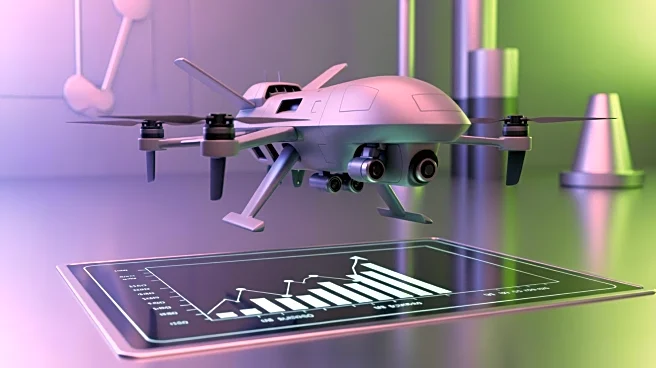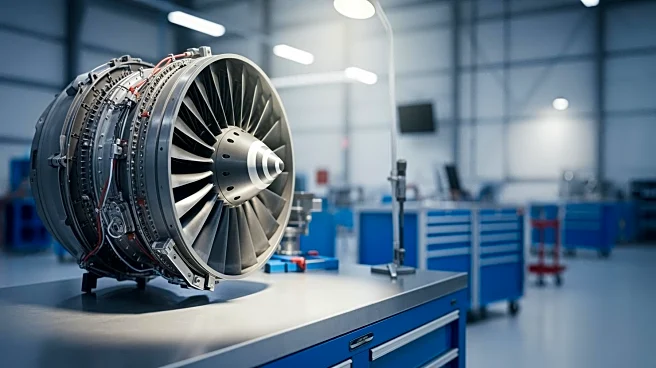What's Happening?
Major defense and aerospace companies, including GE Aerospace, Northrop Grumman, RTX, and Lockheed Martin, have raised their financial outlooks for 2025, driven by increased demand despite economic uncertainties
and tariffs. GE Aerospace reported a significant increase in defense deliveries, up 83% from the previous year, and a record rise in LEAP engine deliveries by 40%. RTX also posted a 12% rise in total revenue for the third quarter, with a notable increase in its aerospace and defense units. Northrop Grumman and Lockheed Martin similarly reported strong earnings, with Northrop's defense systems division sales surging by 14%. Lockheed Martin highlighted unprecedented demand, leading to increased production capacity across its divisions. The U.S. government's defense spending has also risen, with a proposed budget of $849.8 billion for 2025, reflecting priorities to address threats from countries like Russia, Iran, and North Korea.
Why It's Important?
The increased financial outlooks of these defense companies underscore the growing demand for defense and aerospace products, which is likely to have significant implications for the U.S. economy and global security dynamics. The rise in defense spending by the U.S. government indicates a strategic focus on strengthening military capabilities in response to international threats. This trend benefits defense contractors, who are poised to gain from increased government contracts and investments in next-generation technologies. However, the economic challenges posed by tariffs and macroeconomic uncertainties remain a concern, potentially impacting the broader industry and its supply chains.
What's Next?
As defense companies continue to expand their production capacities and invest in new technologies, they are likely to see sustained growth in the coming years. The U.S. government's increased defense budget will further support this expansion, with significant projects like the Golden Dome missile defense system driving future growth. Stakeholders, including political leaders and industry partners, will closely monitor these developments, as they could influence defense policies and international relations. Additionally, the ongoing economic challenges may prompt companies to seek innovative solutions to mitigate risks and maintain profitability.
Beyond the Headlines
The defense industry's growth raises ethical and strategic considerations, particularly regarding the balance between national security and global peace efforts. The increased focus on defense spending may lead to debates about resource allocation and the potential for escalating military tensions. Furthermore, the industry's reliance on advanced technologies highlights the importance of cybersecurity and the need to protect sensitive information from potential threats. As companies invest in digital and physical production capacities, they must also address the environmental and social impacts of their operations.









